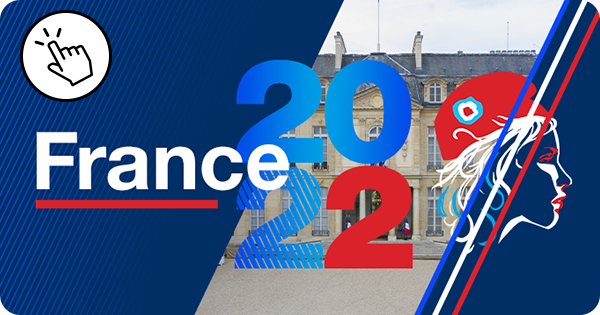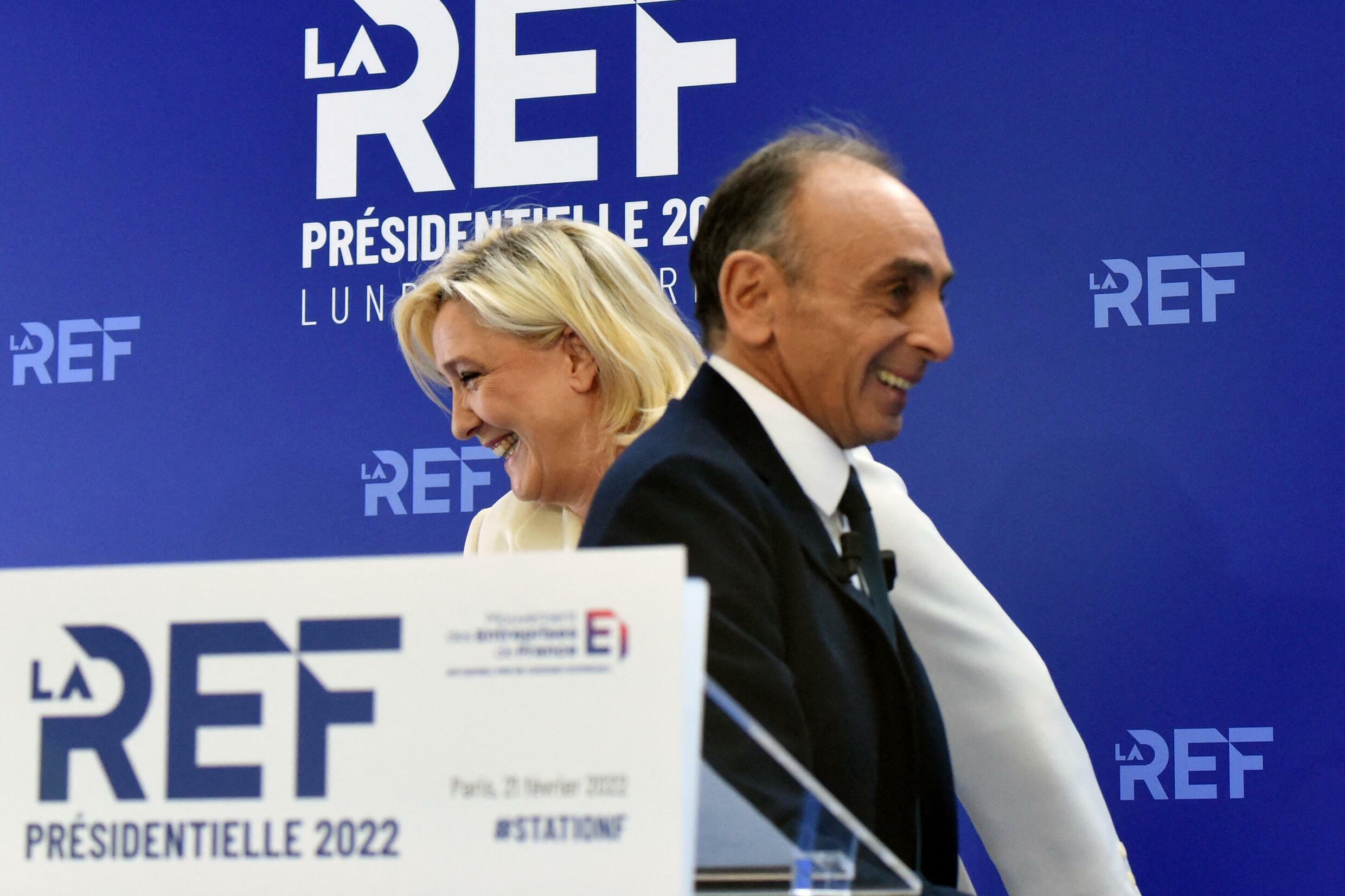One after the other, six French presidential candidates laid out their economic platforms on Monday to business leaders, just as the French economy emerges from the Covid-19 crisis saddled with rising inflation and labour shortages. The scholastic ritual for Elysée Palace hopefuls is viewed by some as a campaign prerequisite.

At the podium, each sought to convince business leaders – drawn together by the Medef employers' federation, chambers of commerce and industry and the Enterprise Institute – that their concerns would be taken to heart under their stewardship over the next five years at the Elysée Palace.
With the incumbent conspicuously absent – Emmanuel Macron has yet to officially declare his bid for re-election – the French economy's ability to compete far and wide was a hot topic, with each presidential challenger underlining France's record trade deficit last year.
The rivals on the right – Zemmour, Le Pen and Pécresse – each advocated for lower taxes on businesses, pledging to pursue the policy of fiscal relief for manufacturers.

French Communist Party candidate Roussel, meanwhile, pledged to focus his attention on "firms' energy bills". He also stumped for nationalising a bank as well as the insurance company Axa to better allow the French state to invest in the economy.
Socialist Party candidate Anne Hidalgo, for her part, pledged status-quo stability on the taxes levied on firms. Greens' candidate Yannick Jadot pitched a system of environmental bonuses and penalties "on the tools of economic policy", be it through taxes on firms or a climate solidarity tax. The latter is also on Hidalgo's agenda.

Jadot's climate-minded pledges were not tailored to elicit glowing endorsements from his audience, but he repeatedly insisted that he "stood by" them regardless, calling the climate challenge a battle to be waged collectively and defending what he called "ecological patriotism". "Ecological transition will happen with companies on board or not at all," Jadot told the crowd.
A 'hatchet' and 'odysseys'
"Re-industrialising" France was another theme on every presidential candidate's lips, although with divergences on quite how to redevelop industry in the country. On the right, the watchword is simplifying norms. Pécresse wants to create a "hatchet committee" to cull the bureaucracy while Zemmour advocates for a "high commission for administrative simplification", less simple at least in name.
European Union budget rules and French sovereignty within the bloc were predictably divisive issues for this wide palette of candidates but all agreed on the need for a carbon tax at the EU border.
Each also pleaded for massive investment in the French economy. Le Pen is campaigning for a sovereign fund that would attract savings from French individuals. Jadot is pledging to put €25 billion towards transitioning the French economy to a greener future. Hidalgo wants to launch four "industrial odysseys" in the realms of healthcare, mobility, digital technology and ecological transition.

Each of the candidates also advocates raising net salaries in France, where purchasing power stands explicitly as voters' number one concern as the election approaches. The candidates on the right on Monday pledged lower social contributions on pay; the candidates on the left, with varying degrees of generosity, each promised to raise the minimum wage.
In a tricky exercise before business leaders generally anxious over French public spending, each presidential challenger at Monday's event also sought to reassure them about how their respective platforms would be financed, although the subject of France's debt level was rarely touched upon.
Only Les Républicains candidate Pécresse, who served as budget minister under former conservative president Nicolas Sarkozy, put clear emphasis on the savings she would seek as president: €45 billion, not least through cutting 200,000 jobs in the public sector.
Le Pen, meanwhile, cited her concern for public spending to explain her recent decision to walk back a campaign pledge for retirement at age 60, scaled back from a sweeping promise to one now available only to those began their working lives early.

'Some platforms are stronger than others'
After listening to the candidates for three hours, Medef chief Geoffroy Roux de Bézieux, who had appealed for the entrepreneurial audience to broach the event with a "respectful" attitude, declined to "support one candidate or another".
"Our preoccupation is to refocus public debate on essentially economic issues, as well as social ones. Mission accomplished, I'd say, on the part of the candidates," Medef executive Patrick Martin added.
"We do see, and you won't get me to be more specific about who I'm thinking of, that in the eyes of business leaders, some platforms are stronger, more efficient, more pertinent than others," he said.
(With AFP)







